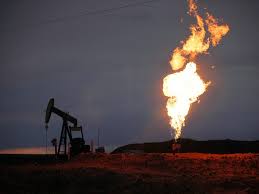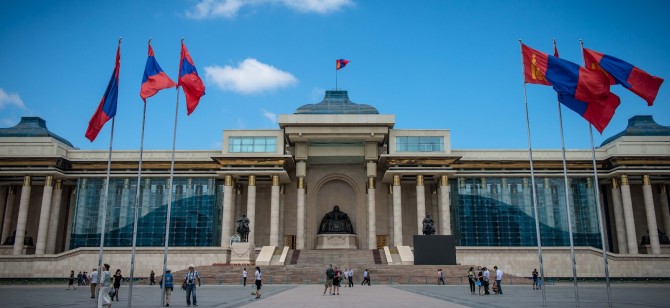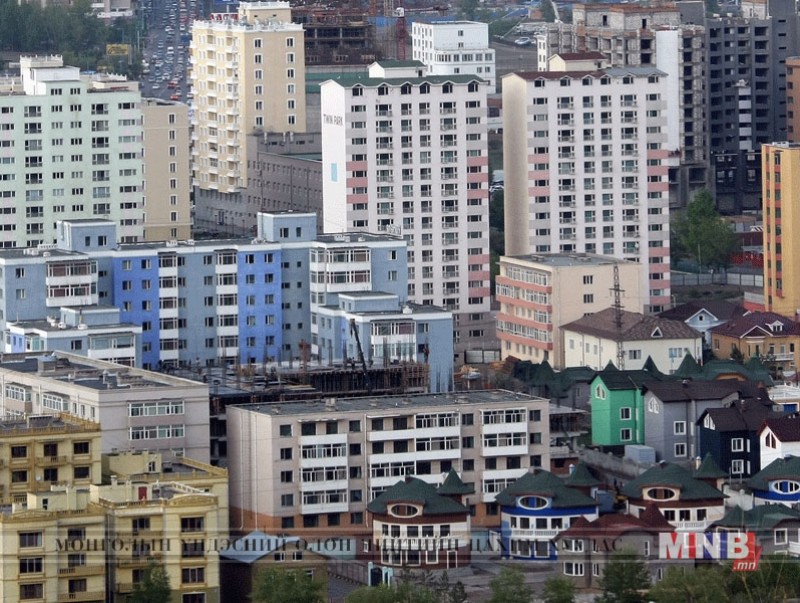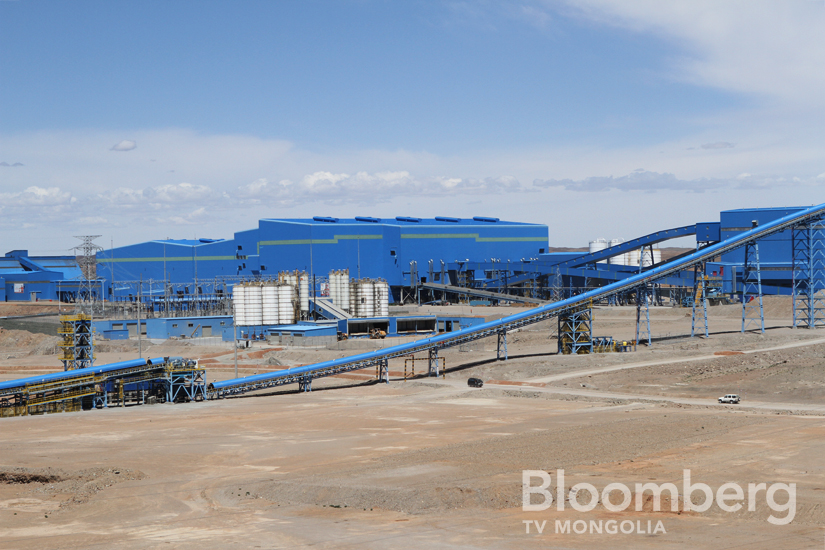Events
| Name | organizer | Where |
|---|---|---|
| MBCC “Doing Business with Mongolia seminar and Christmas Receptiom” Dec 10. 2025 London UK | MBCCI | London UK Goodman LLC |
NEWS

TMK Energy Advances Mongolian CSG Project with Promising Resource Estimates www.tipranks.com
TMK Energy Limited has announced updates on its Gurvantes XXXV CSG Project in Mongolia, highlighting the independent resource estimates provided by Netherland, Sewell & Associates. The project shows significant potential for natural gas recovery, with contingent resources classified into three categories based on confidence levels. This development positions TMK Energy as a key player in Mongolia’s emerging energy market, potentially impacting stakeholders by enhancing the region’s energy supply and contributing to the company’s growth.
TMK Energy Limited operates in the natural gas industry, focusing on the exploration and development of coal seam gas (CSG) resources. The company is primarily engaged in projects in Mongolia, aiming to establish a new energy supply in the region.

Mars-V camp to simulate life on the Red Planet in Mongolia by 2029 www.kz.kursiv.media
An ambitious project called Mars-V is slated to open in Mongolia’s Gobi Desert by 2029, offering, according to organizers, the world’s most realistic simulation of life on Mars. The site won’t just serve as a tourist attraction — it’s designed as a monthlong experiment in living like a member of humanity’s first expedition to the Red Planet.
Organizers promise a fully immersive experience: capsule-style living quarters equipped with a lab and greenhouse, freeze-dried meals, communication with Earth that includes a built-in signal delay, and a tightly regulated daily schedule that includes meditation, exercise, research, and troubleshooting.
Prospective participants will undergo a rigorous selection process, which includes physical and psychological evaluations, followed by three months of online training. Those who qualify will then form a six-person crew, surrender their phones, and spend a month isolated in the desert — cut off from roads and modern communication. The nearest settlement lies a 10-hour drive away.
The Gobi Desert is considered one of the most «Martian» landscapes on Earth, with vast red sand plains, extreme temperature swings — from 45°C to -40°C — and an arid, otherworldly atmosphere.
The program is scheduled to run during the cold season, from October to March, when temperatures can drop to as low as -30°C. Even the camp’s modular structures draw inspiration from traditional Mongolian yurts, blending local heritage with futuristic design.

Government Moves to Curb Misuse of Official Secrets www.montsame.mn
During its regular session on November 12, 2025, the Cabinet of Mongolia discussed and supported the principles of draft amendments to the Law on State and Official Secrets and the draft Law on Approval of the List for State Secrets.
Chief Cabinet Secretary Byambatsogt Sandag said during a press briefing after the cabinet session that the main purpose of the amendments is to prevent the misuse of the “official secret” designation to restrict citizens’ right to information. He noted that in recent years, officials have arbitrarily classified organizational information as official secrets through internal orders. “High-value tenders and contracts have often been concealed under the pretext of confidentiality, creating conditions for corruption in public service,” he said. The Cabinet has therefore decided to submit the draft laws to Parliament.
Currently, 574 issues are classified as confidential under government resolutions. The chief cabinet secretary stated that these matters will be made public.

Pageant for Miss and Mister Universe: Why is Serbia sending a Mongolian and a German? www.vreme.com
At this year's pageant for Miss and Mister Universe, Serbia will be represented by a Mongolian woman and a German with a Serbian passport. The tabloids argue that there are many who are angry because Serbia is not represented by a Serbian woman and a Serbian man, that Serbia is "renouncing its identity".
At the contest for Miss Universe, which will be held on November 21 in Thailand, Serbia will be represented by Jelena Egorova, a model originally from Mongolia.
At the same time, at the contest for Mister Universe, which should be organized on December 21 in Hollywood, Serbia will be represented by Yves-Len Unser, a professional model born in the southwestern city of Rastatt Germany, who, according to the tabloids, proudly points out his Serbian origin, which enabled him to take home the Mister Serbia ribbon.
The tabloids also state that such decisions have caused violent reactions in the public, especially on social networks, and that there are many who are angry because Serbia is not represented by a Serb woman and a Serb man.
Egorova proved that she has Serbian roots
Egorova claims that she got a Serbian passport because she managed to To the Government of Serbia prove that he has Serbian roots.
She also states that she passed the Serbian language exam, that she lived and studied in Serbia, that she respects Serbia and that she is honored to represent the country that "welcomed her with open arms."
"My roots are Asian, my passport is Serbian, but my purpose is universal – to show that beauty today means connection, not division. I want every girl who feels 'different' to see that she can belong anywhere, where she brings kindness, respect and strength," Egorova said on Instagram.
She also said that her heritage connects Europe and Asia, and that she "sees it as a bridge, not a border."
Egorova previously represented Mongolia at the 10th edition of the Miss Grand International pageant.
"Abandonment of identity"
Regarding the fact that she will represent Serbia, a serious discussion took place on Reddit, so the tabloids report that part of the public believes that Miss Universe is "essentially a stupid competition", while others believe that such a selection of the representative of Serbia shows "renunciation of identity".
Some have compared the situation to the situation in sports, and believe that "if basketball and football players can change their passports to play for another country, so can a contestant for Miss Universe."
Others recalled that "no one resented when they were strangers." athletes won medals for Serbia".
Competition "Lost Credibility"
On the occasion of Egorova's engagement, the company that has been organizing the Miss Serbia pageant for decades issued a statement, explaining that Miss Universe is not the same as Miss World (Miss World), in which the winners of the national elections in their countries participate.
Miss World used to be a prestigious competition, but then Donald tramp, once a businessman, and now the American president, sold the license. This competition passed into the hands of dubious organizers who completely destroyed its credibility and tradition of more than seven decades. Since then, the standards have changed drastically. Today, girls and women up to the age of 55 appear at the same competition, while individual participants are awarded ribbons from countries they have never represented," the organization announced. Miss World Serbia.
That organization pointed out that Serbia does not have an official representative this year.
"Many countries that respect credibility." Miss World licenses, withdrew from this competition last year, and Serbia is among them. The official Miss Serbia, which participates in the Miss World pageant, has nothing to do with this competition, nor does Serbia have a legitimate representative in the current Miss Universe pageant," the organization stated. Miss World Serbia.
Unser is proud of his Serbian origin
When it comes to Yves-Len Unser, who will represent Serbia at the Mister Universe contest, the tabloids state that he has an enviable modeling career behind him, that he has worked for brands such as Adidas and Diesel and that he participated in Fashion Weeks in New York and Los Angeles.
"With pride in his Serbian origins and a fearless spirit for adventure, Yves-Len Unser enters the world stage as a representative of Serbia at Mr. Universe 2025. Born in Rastatt, Germany, Yves carries the strength of his roots and the determination of a true innovator. As an independent entrepreneur with a passion for personal development and extreme sports, he embodies discipline, endurance and elegance. His character is shaped by determination. Yves is more than a competitor: he is a symbol of courageous character and unlimited ambition. Ready to take advantage of this extraordinary opportunity, Yves wants to inspire the world with his story, strength and unwavering pride!

Construction Output Reaches MNT 8.8 Trillion in First Nine Months of 2025 www.montsame.mn
Mongolia’s construction sector recorded a total output of MNT 8.8 trillion in the first nine months of 2025, according to the National Statistics Office. Of this, domestic construction companies accounted for MNT 8.5 trillion, while foreign contractors contributed MNT 349.3 billion.
Compared to the same period in 2024, the sector’s overall output increased by MNT 2 trillion. Work completed by domestic entities rose by MNT 2.3 trillion, with private companies contributing MNT 7.7 trillion – a year-on-year increase of MNT 1.6 trillion. Public sector institutions also expanded their operations, completing MNT 718.2 billion more in construction work compared to the same period last year.
Sector Composition
By project type, residential buildings accounted for 36.6 percent of total output, followed by non-residential buildings and infrastructure projects at 29.5 percent each, and major renovation works at 4.4 percent. Compared to the same period in 2024, residential construction declined by 0.8 percentage points, and non-residential projects by 3 percentage points. In contrast, infrastructure and engineering structures rose by 2.5 percentage points, while major renovations increased by 1.3 percentage points.
Non-Residential Growth
Non-residential construction alone reached MNT 2.6 trillion, up MNT 377.4 billion year-on-year. Category breakdowns include:
School and cultural facilities increased by MNT 326.7 billion
Commercial and service buildings by MNT 92.4 billion
Other non-residential buildings by MNT 91.6 billion
Healthcare facilities by MNT 3.6 billion
Regional Performance
Ulaanbaatar led national activity, accounting for MNT 4.6 trillion in construction and renovation work – 51.8 percent of the total output. Preliminary data also indicate strong performance in key provinces:
Umnugobi aimag completed MNT 855.6 billion
Selenge aimag MNT 516.1 billion
Darkhan-Uul aimag MNT 474.6 billion. Combined, these aimags contributed 43.4 percent of rural construction output.
Key Projects Driving Growth
Major developments accelerating regional growth included the Bagakhangai – Khushig Valley railway line, large-scale road upgrades, residential housing projects, underground mine development at Oyu Tolgoi in Umnugobi, non-residential facilities in Selenge, and residential construction in Darkhan-Uul.

Food Sales Rise to MNT 10.9 Trillion, Boosting Trade Sector Revenue www.montsame.mn
The trade sector’s sales revenue reached MNT 48.5 trillion in the first nine months of 2025, an increase of MNT 289.8 billion compared to the same period in 2024, the National Statistics Office of Mongolia reported.
Of the total sales revenue, 22.4 percent came from food products, while 77.6 percent came from non-food products. Sales of food products amounted to MNT 10.9 trillion, up MNT 572.7 billion from the same period last year.
Wholesale trade accounted for 44.0 percent of the revenue, and retail trade for 6 percent. Retail sales revenue reached MNT 27.2 trillion, marking an increase of MNT 587 billion compared to the first nine months of 2024.
Geographically, 86 percent of the trade sector’s revenue was generated in Ulaanbaatar, 3.4 percent in Umnugobi, 1.2 percent in Orkhon, and 1.3 percent in Darkhan-Uul aimag, together comprising 91.8 percent of total sales revenue in the sector.

Proposal Made to Appoint Mongolian National as CEO of Oyu Tolgoi www.montsame.mn
Prime Minister Zandanshatar Gombojav held a virtual meeting with Katie Jackson, Chief Executive of the Copper Division of the Rio Tinto company, on November 11, 2025, to discuss ways to increase the benefits of the Oyu Tolgoi project for Mongolia.
During the meeting, Prime Minister Zandanshatar and Katy Jackson noted that bilateral negotiations on reducing the project’s loan interest rate and management fees are progressing successfully and that a principled agreement has been reached. Both sides agreed on the importance of advancing the talks further and achieving tangible results. The Prime Minister also emphasized that the issue of reducing the loan interest rate should be addressed separately from the licensing matters of “Ontre” LLC.
He further highlighted that having the Oyu Tolgoi company’s CEO nominated and appointed from the Mongolian side would be a significant step toward ensuring Mongolia’s interests are fully represented.
Ms. Katy Jackson reaffirmed Rio Tinto’s commitment to working actively and closely with the Mongolian Government to implement the Prime Minister’s proposals and to increase Mongolia’s share of benefits from the Oyu Tolgoi project.

Mongolian Team Advances to Final Four in Netflix’s 'Physical: Asia' Show www.montsame.mn
The top four teams of Netflix’s “Physical: Asia” were determined through a series of intense challenges on November 11, 2025.
The show, which began on October 28 with eight teams, now features four remaining countries: Mongolia, South Korea, Japan, and Australia, which have proven their strength, skills, and intelligence to advance to the semifinals. In the fifth challenge, the Japanese team emerged victorious, while the remaining three teams are set to compete in a “death match.” Episodes 10–12, to be released on November 18, 2025, will determine the ultimate winner.
In earlier rounds, the Mongolian athletes delivered an impressive performance that captured viewers’ attention across Asia. During the “Totem Pole” match of Quest 3, Mongolian contenders Enkh-Orgil Baatarkhuu and Adiyasuren Amarsaikhan showcased extraordinary endurance and resilience, holding their ground for more than 40 minutes against powerful opponents from Japan and Türkiye.
The winning team will receive a grand prize of KRW 1 billion, as announced by the producers. Since its premiere, the show has broken viewership records across Asia. As of November 5, it had been streamed 5.2 million times, ranking third in Netflix’s Non-English TV category. Physical: Asia has also appeared in the Top 10 lists in 44 countries, reaching No. 1 in eight nations.
This marks the first time a Mongolian team has participated in an international physical competition of this scale, demonstrating the nation’s strength, endurance, and indomitable spirit to audiences worldwide.

Jade Gas signs agreement with Langrun to develop Mongolian methane project www.petroleumaustralia.com.au
Jade Gas Holdings Ltd. has signed a non-binding letter of intent with Chinese gas equipment manufacturer Zhengzhou Langrun Intelligent Equipment Co. Ltd. to develop a coal-bed methane project in Mongolia.
The agreement between the two companies includes project financing of up to US$46 million over the first stage of Jade’s Red Lake development. Key aspects include drilling and production operations for the 18 wells at the Red Lake gasfield and potential to expand the terms to accommodate all 175 Phase 1 gas production wells.
Jade said it chose to enter into an agreement with Langrun based on their proven operating and financial capabilities and their previous experience with similar scale coal bed methane projects. Langrun’s expertise also allows Jade to seek options to fast-track development of the Red Lake gas field and to optimise gas production.
Jade Executive Director, Joe Burke, said: “Langrun are well known to us, having also worked with our drilling contractor DWK for many years.
“Having a collaboration of this nature with a company with such vast experience in gasfield developments of this stage would be a huge advantage as we focus on the most appropriate pathway to develop the Red Lake gasfield.”
“Considering the high gas potential demonstrated now at Red Lake, our focus remains on moving quickly to gas production and customer markets for early revenue.”
The Red Lake gasfield could potentially be developed to cover purification, pipeline and other transport, compression, liquefaction, refuelling station construction, enabling gas sales for vehicle, industrial and other markets.
Langrun CEO Wang Yongtao said: “We share in Jade’s view that there is a significant opportunity for gas in the southern Mongolian region, and Langrun has the experience and understanding to execute on this vision to take advantage of the gas demand in the region, particularly for LNG and CNG where we have a rich experience.”
Jade could provide the gas source, land for facilities and operational rights, while Langurn will arrange the financing for drilling and other production services and manage production operations.
The initial phase of development will focus on 20 wells, while in the subsequent phase, the partnership may expand to cover additional wells and broader project development.
The initial letter of intent is non-exclusive and does not create any immediate financial obligations on Jade. A binding agreement is subject to commercial flow rates at the first two production wells, and regulator and Mongolian government approval.

S.Byambatsogt: Government to privatize 10–51% of MIAT, State Bank and TPP-3 www.gogo.mn
The government has signalled a major shift in the management of state assets as part of its five-year development plan for 2026–2030. The draft resolution setting out the plan was submitted to Parliament on October 30, and Prime Minister G.Zandanshatar presented the development strategy to the public on November 9. After the presentation, Ministers answered journalists’ questions, including how the government plans to close the door to corruption and theft in state companies.
S.Byambatsogt, Chief Cabinet Secretary, said the government’s first priority is to stop theft by making state-owned enterprises transparent and more efficient. “If financial agreements, reports and bids are open and transparent, the opportunities for theft at state companies will be removed”, describing transparency measures already under way. He noted that between 2010 and 2025, 581 of 586 Erdenes Tavan Tolgoi contracts were made public, and that work is in progress to publish five international contracts.
S.Byambatsogt said legal reform is also essential. The government has submitted a draft law on state and local-owned companies and a draft law on state public property to Parliament; if adopted, these laws will create the legal framework for major reforms and greater public participation in ownership. An international audit of Erdenes Tavan Tolgoi was also carried out last week to introduce international management practices and move the company toward a transparent, publicly accountable joint-stock form.
As part of this programme, S.Byambatsogt said the government will present a policy paper during the autumn parliamentary session proposing partial privatization (10–51%) of selected state enterprises, including MIAT, the State Bank, TPP-3 and state electricity distribution companies. He said the aim is to reduce direct state competition with the private sector, improve governance, and widen public oversight through shareholding and openness.
- «
- 1
- 2
- 3
- 4
- 5
- 6
- 7
- 8
- 9
- 10
- 11
- 12
- 13
- 14
- 15
- 16
- 17
- 18
- 19
- 20
- 21
- 22
- 23
- 24
- 25
- 26
- 27
- 28
- 29
- 30
- 31
- 32
- 33
- 34
- 35
- 36
- 37
- 38
- 39
- 40
- 41
- 42
- 43
- 44
- 45
- 46
- 47
- 48
- 49
- 50
- 51
- 52
- 53
- 54
- 55
- 56
- 57
- 58
- 59
- 60
- 61
- 62
- 63
- 64
- 65
- 66
- 67
- 68
- 69
- 70
- 71
- 72
- 73
- 74
- 75
- 76
- 77
- 78
- 79
- 80
- 81
- 82
- 83
- 84
- 85
- 86
- 87
- 88
- 89
- 90
- 91
- 92
- 93
- 94
- 95
- 96
- 97
- 98
- 99
- 100
- 101
- 102
- 103
- 104
- 105
- 106
- 107
- 108
- 109
- 110
- 111
- 112
- 113
- 114
- 115
- 116
- 117
- 118
- 119
- 120
- 121
- 122
- 123
- 124
- 125
- 126
- 127
- 128
- 129
- 130
- 131
- 132
- 133
- 134
- 135
- 136
- 137
- 138
- 139
- 140
- 141
- 142
- 143
- 144
- 145
- 146
- 147
- 148
- 149
- 150
- 151
- 152
- 153
- 154
- 155
- 156
- 157
- 158
- 159
- 160
- 161
- 162
- 163
- 164
- 165
- 166
- 167
- 168
- 169
- 170
- 171
- 172
- 173
- 174
- 175
- 176
- 177
- 178
- 179
- 180
- 181
- 182
- 183
- 184
- 185
- 186
- 187
- 188
- 189
- 190
- 191
- 192
- 193
- 194
- 195
- 196
- 197
- 198
- 199
- 200
- 201
- 202
- 203
- 204
- 205
- 206
- 207
- 208
- 209
- 210
- 211
- 212
- 213
- 214
- 215
- 216
- 217
- 218
- 219
- 220
- 221
- 222
- 223
- 224
- 225
- 226
- 227
- 228
- 229
- 230
- 231
- 232
- 233
- 234
- 235
- 236
- 237
- 238
- 239
- 240
- 241
- 242
- 243
- 244
- 245
- 246
- 247
- 248
- 249
- 250
- 251
- 252
- 253
- 254
- 255
- 256
- 257
- 258
- 259
- 260
- 261
- 262
- 263
- 264
- 265
- 266
- 267
- 268
- 269
- 270
- 271
- 272
- 273
- 274
- 275
- 276
- 277
- 278
- 279
- 280
- 281
- 282
- 283
- 284
- 285
- 286
- 287
- 288
- 289
- 290
- 291
- 292
- 293
- 294
- 295
- 296
- 297
- 298
- 299
- 300
- 301
- 302
- 303
- 304
- 305
- 306
- 307
- 308
- 309
- 310
- 311
- 312
- 313
- 314
- 315
- 316
- 317
- 318
- 319
- 320
- 321
- 322
- 323
- 324
- 325
- 326
- 327
- 328
- 329
- 330
- 331
- 332
- 333
- 334
- 335
- 336
- 337
- 338
- 339
- 340
- 341
- 342
- 343
- 344
- 345
- 346
- 347
- 348
- 349
- 350
- 351
- 352
- 353
- 354
- 355
- 356
- 357
- 358
- 359
- 360
- 361
- 362
- 363
- 364
- 365
- 366
- 367
- 368
- 369
- 370
- 371
- 372
- 373
- 374
- 375
- 376
- 377
- 378
- 379
- 380
- 381
- 382
- 383
- 384
- 385
- 386
- 387
- 388
- 389
- 390
- 391
- 392
- 393
- 394
- 395
- 396
- 397
- 398
- 399
- 400
- 401
- 402
- 403
- 404
- 405
- 406
- 407
- 408
- 409
- 410
- 411
- 412
- 413
- 414
- 415
- 416
- 417
- 418
- 419
- 420
- 421
- 422
- 423
- 424
- 425
- 426
- 427
- 428
- 429
- 430
- 431
- 432
- 433
- 434
- 435
- 436
- 437
- 438
- 439
- 440
- 441
- 442
- 443
- 444
- 445
- 446
- 447
- 448
- 449
- 450
- 451
- 452
- 453
- 454
- 455
- 456
- 457
- 458
- 459
- 460
- 461
- 462
- 463
- 464
- 465
- 466
- 467
- 468
- 469
- 470
- 471
- 472
- 473
- 474
- 475
- 476
- 477
- 478
- 479
- 480
- 481
- 482
- 483
- 484
- 485
- 486
- 487
- 488
- 489
- 490
- 491
- 492
- 493
- 494
- 495
- 496
- 497
- 498
- 499
- 500
- 501
- 502
- 503
- 504
- 505
- 506
- 507
- 508
- 509
- 510
- 511
- 512
- 513
- 514
- 515
- 516
- 517
- 518
- 519
- 520
- 521
- 522
- 523
- 524
- 525
- 526
- 527
- 528
- 529
- 530
- 531
- 532
- 533
- 534
- 535
- 536
- 537
- 538
- 539
- 540
- 541
- 542
- 543
- 544
- 545
- 546
- 547
- 548
- 549
- 550
- 551
- 552
- 553
- 554
- 555
- 556
- 557
- 558
- 559
- 560
- 561
- 562
- 563
- 564
- 565
- 566
- 567
- 568
- 569
- 570
- 571
- 572
- 573
- 574
- 575
- 576
- 577
- 578
- 579
- 580
- 581
- 582
- 583
- 584
- 585
- 586
- 587
- 588
- 589
- 590
- 591
- 592
- 593
- 594
- 595
- 596
- 597
- 598
- 599
- 600
- 601
- 602
- 603
- 604
- 605
- 606
- 607
- 608
- 609
- 610
- 611
- 612
- 613
- 614
- 615
- 616
- 617
- 618
- 619
- 620
- 621
- 622
- 623
- 624
- 625
- 626
- 627
- 628
- 629
- 630
- 631
- 632
- 633
- 634
- 635
- 636
- 637
- 638
- 639
- 640
- 641
- 642
- 643
- 644
- 645
- 646
- 647
- 648
- 649
- 650
- 651
- 652
- 653
- 654
- 655
- 656
- 657
- 658
- 659
- 660
- 661
- 662
- 663
- 664
- 665
- 666
- 667
- 668
- 669
- 670
- 671
- 672
- 673
- 674
- 675
- 676
- 677
- 678
- 679
- 680
- 681
- 682
- 683
- 684
- 685
- 686
- 687
- 688
- 689
- 690
- 691
- 692
- 693
- 694
- 695
- 696
- 697
- 698
- 699
- 700
- 701
- 702
- 703
- 704
- 705
- 706
- 707
- 708
- 709
- 710
- 711
- 712
- 713
- 714
- 715
- 716
- 717
- 718
- 719
- 720
- 721
- 722
- 723
- 724
- 725
- 726
- 727
- 728
- 729
- 730
- 731
- 732
- 733
- 734
- 735
- 736
- 737
- 738
- 739
- 740
- 741
- 742
- 743
- 744
- 745
- 746
- 747
- 748
- 749
- 750
- 751
- 752
- 753
- 754
- 755
- 756
- 757
- 758
- 759
- 760
- 761
- 762
- 763
- 764
- 765
- 766
- 767
- 768
- 769
- 770
- 771
- 772
- 773
- 774
- 775
- 776
- 777
- 778
- 779
- 780
- 781
- 782
- 783
- 784
- 785
- 786
- 787
- 788
- 789
- 790
- 791
- 792
- 793
- 794
- 795
- 796
- 797
- 798
- 799
- 800
- 801
- 802
- 803
- 804
- 805
- 806
- 807
- 808
- 809
- 810
- 811
- 812
- 813
- 814
- 815
- 816
- 817
- 818
- 819
- 820
- 821
- 822
- 823
- 824
- 825
- 826
- 827
- 828
- 829
- 830
- 831
- 832
- 833
- 834
- 835
- 836
- 837
- 838
- 839
- 840
- 841
- 842
- 843
- 844
- 845
- 846
- 847
- 848
- 849
- 850
- 851
- 852
- 853
- 854
- 855
- 856
- 857
- 858
- 859
- 860
- 861
- 862
- 863
- 864
- 865
- 866
- 867
- 868
- 869
- 870
- 871
- 872
- 873
- 874
- 875
- 876
- 877
- 878
- 879
- 880
- 881
- 882
- 883
- 884
- 885
- 886
- 887
- 888
- 889
- 890
- 891
- 892
- 893
- 894
- 895
- 896
- 897
- 898
- 899
- 900
- 901
- 902
- 903
- 904
- 905
- 906
- 907
- 908
- 909
- 910
- 911
- 912
- 913
- 914
- 915
- 916
- 917
- 918
- 919
- 920
- 921
- 922
- 923
- 924
- 925
- 926
- 927
- 928
- 929
- 930
- 931
- 932
- 933
- 934
- 935
- 936
- 937
- 938
- 939
- 940
- 941
- 942
- 943
- 944
- 945
- 946
- 947
- 948
- 949
- 950
- 951
- 952
- 953
- 954
- 955
- 956
- 957
- 958
- 959
- 960
- 961
- 962
- 963
- 964
- 965
- 966
- 967
- 968
- 969
- 970
- 971
- 972
- 973
- 974
- 975
- 976
- 977
- 978
- 979
- 980
- 981
- 982
- 983
- 984
- 985
- 986
- 987
- 988
- 989
- 990
- 991
- 992
- 993
- 994
- 995
- 996
- 997
- 998
- 999
- 1000
- 1001
- 1002
- 1003
- 1004
- 1005
- 1006
- 1007
- 1008
- 1009
- 1010
- 1011
- 1012
- 1013
- 1014
- 1015
- 1016
- 1017
- 1018
- 1019
- 1020
- 1021
- 1022
- 1023
- 1024
- 1025
- 1026
- 1027
- 1028
- 1029
- 1030
- 1031
- 1032
- 1033
- 1034
- 1035
- 1036
- 1037
- 1038
- 1039
- 1040
- 1041
- 1042
- 1043
- 1044
- 1045
- 1046
- 1047
- 1048
- 1049
- 1050
- 1051
- 1052
- 1053
- 1054
- 1055
- 1056
- 1057
- 1058
- 1059
- 1060
- 1061
- 1062
- 1063
- 1064
- 1065
- 1066
- 1067
- 1068
- 1069
- 1070
- 1071
- 1072
- 1073
- 1074
- 1075
- 1076
- 1077
- 1078
- 1079
- 1080
- 1081
- 1082
- 1083
- 1084
- 1085
- 1086
- 1087
- 1088
- 1089
- 1090
- 1091
- 1092
- 1093
- 1094
- 1095
- 1096
- 1097
- 1098
- 1099
- 1100
- 1101
- 1102
- 1103
- 1104
- 1105
- 1106
- 1107
- 1108
- 1109
- 1110
- 1111
- 1112
- 1113
- 1114
- 1115
- 1116
- 1117
- 1118
- 1119
- 1120
- 1121
- 1122
- 1123
- 1124
- 1125
- 1126
- 1127
- 1128
- 1129
- 1130
- 1131
- 1132
- 1133
- 1134
- 1135
- 1136
- 1137
- 1138
- 1139
- 1140
- 1141
- 1142
- 1143
- 1144
- 1145
- 1146
- 1147
- 1148
- 1149
- 1150
- 1151
- 1152
- 1153
- 1154
- 1155
- 1156
- 1157
- 1158
- 1159
- 1160
- 1161
- 1162
- 1163
- 1164
- 1165
- 1166
- 1167
- 1168
- 1169
- 1170
- 1171
- 1172
- 1173
- 1174
- 1175
- 1176
- 1177
- 1178
- 1179
- 1180
- 1181
- 1182
- 1183
- 1184
- 1185
- 1186
- 1187
- 1188
- 1189
- 1190
- 1191
- 1192
- 1193
- 1194
- 1195
- 1196
- 1197
- 1198
- 1199
- 1200
- 1201
- 1202
- 1203
- 1204
- 1205
- 1206
- 1207
- 1208
- 1209
- 1210
- 1211
- 1212
- 1213
- 1214
- 1215
- 1216
- 1217
- 1218
- 1219
- 1220
- 1221
- 1222
- 1223
- 1224
- 1225
- 1226
- 1227
- 1228
- 1229
- 1230
- 1231
- 1232
- 1233
- 1234
- 1235
- 1236
- 1237
- 1238
- 1239
- 1240
- 1241
- 1242
- 1243
- 1244
- 1245
- 1246
- 1247
- 1248
- 1249
- 1250
- 1251
- 1252
- 1253
- 1254
- 1255
- 1256
- 1257
- 1258
- 1259
- 1260
- 1261
- 1262
- 1263
- 1264
- 1265
- 1266
- 1267
- 1268
- 1269
- 1270
- 1271
- 1272
- 1273
- 1274
- 1275
- 1276
- 1277
- 1278
- 1279
- 1280
- 1281
- 1282
- 1283
- 1284
- 1285
- 1286
- 1287
- 1288
- 1289
- 1290
- 1291
- 1292
- 1293
- 1294
- 1295
- 1296
- 1297
- 1298
- 1299
- 1300
- 1301
- 1302
- 1303
- 1304
- 1305
- 1306
- 1307
- 1308
- 1309
- 1310
- 1311
- 1312
- 1313
- 1314
- 1315
- 1316
- 1317
- 1318
- 1319
- 1320
- 1321
- 1322
- 1323
- 1324
- 1325
- 1326
- 1327
- 1328
- 1329
- 1330
- 1331
- 1332
- 1333
- 1334
- 1335
- 1336
- 1337
- 1338
- 1339
- 1340
- 1341
- 1342
- 1343
- 1344
- 1345
- 1346
- 1347
- 1348
- 1349
- 1350
- 1351
- 1352
- 1353
- 1354
- 1355
- 1356
- 1357
- 1358
- 1359
- 1360
- 1361
- 1362
- 1363
- 1364
- 1365
- 1366
- 1367
- 1368
- 1369
- 1370
- 1371
- 1372
- 1373
- 1374
- 1375
- 1376
- 1377
- 1378
- 1379
- 1380
- 1381
- 1382
- 1383
- 1384
- 1385
- 1386
- 1387
- 1388
- 1389
- 1390
- 1391
- 1392
- 1393
- 1394
- 1395
- 1396
- 1397
- 1398
- 1399
- 1400
- 1401
- 1402
- 1403
- 1404
- 1405
- 1406
- 1407
- 1408
- 1409
- 1410
- 1411
- 1412
- 1413
- 1414
- 1415
- 1416
- 1417
- 1418
- 1419
- 1420
- 1421
- 1422
- 1423
- 1424
- 1425
- 1426
- 1427
- 1428
- 1429
- 1430
- 1431
- 1432
- 1433
- 1434
- 1435
- 1436
- 1437
- 1438
- 1439
- 1440
- 1441
- 1442
- 1443
- 1444
- 1445
- 1446
- 1447
- 1448
- 1449
- 1450
- 1451
- 1452
- 1453
- 1454
- 1455
- 1456
- 1457
- 1458
- 1459
- 1460
- 1461
- 1462
- 1463
- 1464
- 1465
- 1466
- 1467
- 1468
- 1469
- 1470
- 1471
- 1472
- 1473
- 1474
- 1475
- 1476
- 1477
- 1478
- 1479
- 1480
- 1481
- 1482
- 1483
- 1484
- 1485
- 1486
- 1487
- 1488
- 1489
- 1490
- 1491
- 1492
- 1493
- 1494
- 1495
- 1496
- 1497
- 1498
- 1499
- 1500
- 1501
- 1502
- 1503
- 1504
- 1505
- 1506
- 1507
- 1508
- 1509
- 1510
- 1511
- 1512
- 1513
- 1514
- 1515
- 1516
- 1517
- 1518
- 1519
- 1520
- 1521
- 1522
- 1523
- 1524
- 1525
- 1526
- 1527
- 1528
- 1529
- 1530
- 1531
- 1532
- 1533
- 1534
- 1535
- 1536
- 1537
- 1538
- 1539
- 1540
- 1541
- 1542
- 1543
- 1544
- 1545
- 1546
- 1547
- 1548
- 1549
- 1550
- 1551
- 1552
- 1553
- 1554
- 1555
- 1556
- 1557
- 1558
- 1559
- 1560
- 1561
- 1562
- 1563
- 1564
- 1565
- 1566
- 1567
- 1568
- 1569
- 1570
- 1571
- 1572
- 1573
- 1574
- 1575
- 1576
- 1577
- 1578
- 1579
- 1580
- 1581
- 1582
- 1583
- 1584
- 1585
- 1586
- 1587
- 1588
- 1589
- 1590
- 1591
- 1592
- 1593
- 1594
- 1595
- 1596
- 1597
- 1598
- 1599
- 1600
- 1601
- 1602
- 1603
- 1604
- 1605
- 1606
- 1607
- 1608
- 1609
- 1610
- 1611
- 1612
- 1613
- 1614
- 1615
- 1616
- 1617
- 1618
- 1619
- 1620
- 1621
- 1622
- 1623
- 1624
- 1625
- 1626
- 1627
- 1628
- 1629
- 1630
- 1631
- 1632
- 1633
- 1634
- 1635
- 1636
- 1637
- 1638
- 1639
- 1640
- 1641
- 1642
- 1643
- 1644
- 1645
- 1646
- 1647
- 1648
- 1649
- 1650
- 1651
- 1652
- 1653
- 1654
- 1655
- 1656
- 1657
- 1658
- 1659
- 1660
- 1661
- 1662
- 1663
- 1664
- 1665
- 1666
- 1667
- 1668
- 1669
- 1670
- 1671
- 1672
- 1673
- 1674
- 1675
- 1676
- 1677
- 1678
- 1679
- 1680
- 1681
- 1682
- 1683
- 1684
- 1685
- 1686
- 1687
- 1688
- 1689
- 1690
- 1691
- 1692
- 1693
- 1694
- 1695
- 1696
- 1697
- 1698
- 1699
- 1700
- 1701
- 1702
- 1703
- 1704
- 1705
- 1706
- 1707
- 1708
- 1709
- 1710
- 1711
- 1712
- 1713
- 1714
- 1715
- 1716
- »






